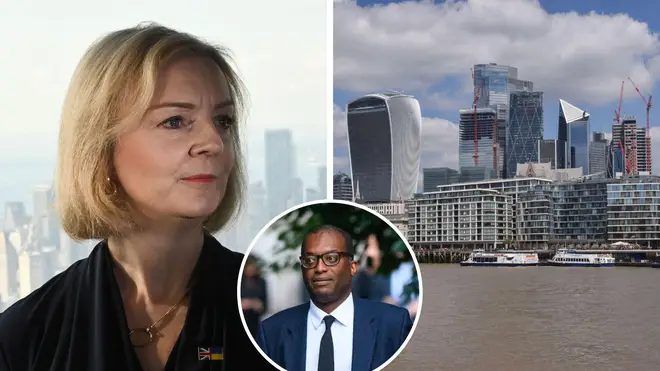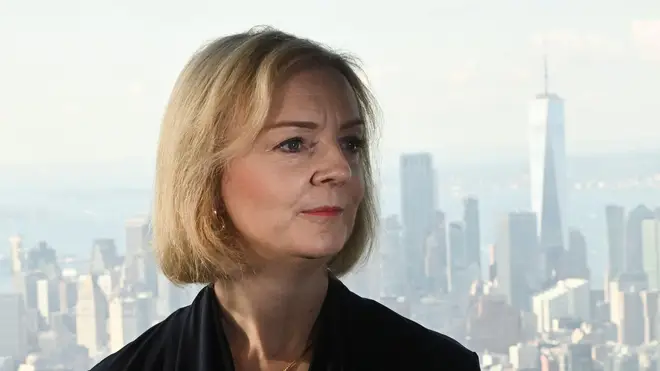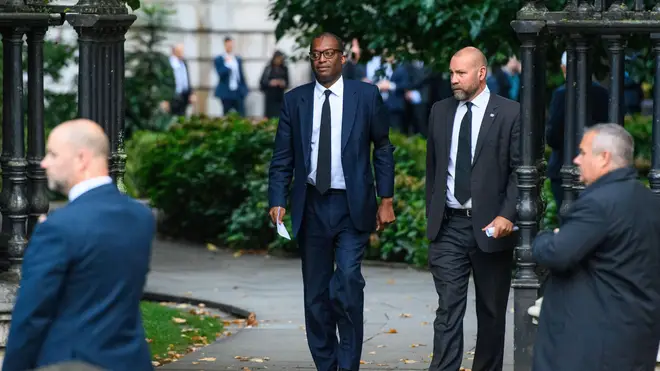
Matthew Wright 7am - 10am
21 September 2022, 00:28 | Updated: 21 September 2022, 06:43

Liz Truss has admitted she is willing to be unpopular by introducing policies such as fracking and scrapping the cap on bankers' bonuses to deliver economic growth.
Liz Truss wants to embark on a taxation revolution as she pointed to cuts as the way forward to economic prosperity.
Sources characterised Ms Truss as wanting to bring Britain into a "new era" where domestic freedom is married with stronger economic and security policies in a world where authoritarian powers threaten the global order.
The Prime Minister has confirmed long-known plans that she will reverse the rise in National Insurance contributions and cancel the planned hike in corporation tax.
But she hinted she may look to go even further with tax cuts.
Her Government will also need to defend the planned lifting of the cap on banker's bonuses, especially as US President Joe Biden hit out at "trickle down economics" – and Ms Truss is due to tell world leaders to enact tax cuts to fuel growth and curb the influence of autocratic states like Russia.
Ms Truss, who has followed the Queen's funeral with a visit to New York for the United Nations General Assembly, said: "The number one thing we need to deliver as a government, and in fact as a country, is economic growth.
"Lower taxes lead to economic growth, there is no doubt in my mind about that. Now, there are of course other measures that we have to take to spur economic growth as well.

"During the [leadership] campaign I talked about moving faster in getting growth projects going, mobile broadband fixing, the arteries of the economy — we need to do that too.
"But having the highest taxes in 70 years and putting up corporation tax at a time when we're trying to attract investment to this country isn't going to deliver growth. We need to be competitive."
Read more: Truss vows to slash taxes and insists soaring energy bills are a 'price worth paying' to stop Putin
The Times reported that Mr Kwarteng is also planning to announce a cut in stamp duty in a further attempt to boost growth - although Downing Street refused to comment.
Ms Truss also effectively confirmed a plan to scrap the cap on bankers' bonuses as she argued she needs to make "difficult decisions" under her gamble to go for growth.
She was asked during a round of broadcast interviews on the 102nd-floor observatory of the Empire State Building if she is prepared to be unpopular.
"Yes. Yes, I am," she replied.
"What is important to me is we grow the British economy because that's what will ultimately deliver higher wages, more investment in towns and cities across the country. That's what will ultimately deliver more money to people's pockets.
"In order to get that economic growth, Britain has to be competitive. If we put up taxes, if we have arbitrary taxes on energy companies, if we have high corporation tax, we're not going to get that investment and growth..."
Chancellor Kwasi Kwarteng is due to present a mini-budget but it is unclear how radical it will be at this stage.
In comments more likely to have been aimed at a domestic US audience – but tweeting them out with remarkable timing – Mr Biden, who is due to meet Ms Truss, said: "I am sick and tired of trickle-down economics. It has never worked.
"We're building an economy from the bottom up and middle out."
Trickle down economics is the notion that cutting tax for top earners and big businesses allows wealth to makes its way down to people on lower incomes.
Downing Street hit out at suggestions they were aimed at the PM.

But the move to cut taxes now was questioned given high inflation, and the removal of a cap on banker's bonuses will prove to be controversial.
"We are on the side of delivering a high-wage economy," Ms Truss said, defending the removal of the limit.
"That's what we need to do. We'll take every measure, not every measure will be popular. And there are always vested interests, people who oppose measures that increase economic growth."
Ms Truss and Mr Biden will meet on Wednesday, amid a backdrop of the cost of living crisis, the stalled attempt at a trade deal – which Ms Truss admitted could take years to conclude – and the dispute over the Northern Ireland Protocol.
She is also due to tell the United Nations that cutting taxes and prioritising economic growth will limit how much states like Russia can influence the world's economy.